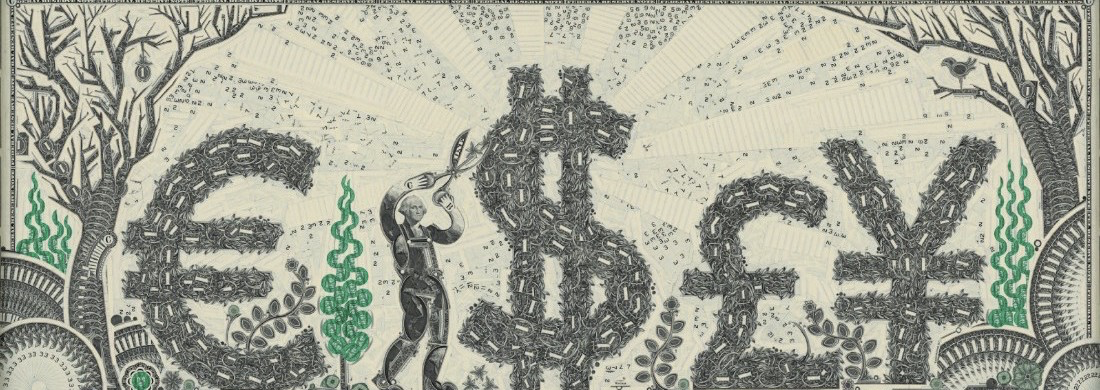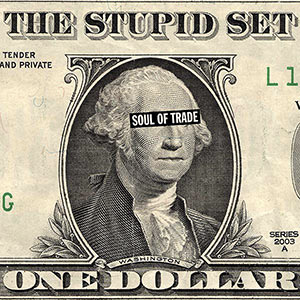Broke To Woke
No matter who you are or what you do for a living, having a general economic awareness — meaning a general sense of what’s happening in your economic environment — can make the world of difference in your financial standing. It can change the way you understand the world around you, putting a stethoscope to the current pulse and pace of our economy.
Ultimately, if your survival and ability to thrive depends on the economy, then it makes sense to be as in touch as possible with what’s happening. If you’ve got some skin in this game (which you almost certainly do), it’s best to know what is going on in the game.
Personal competence is key and it starts with attaining the right information. And I don’t just mean knowing what’s happening in the news or knowing what’s trending on Twitter. Headlines can help you but won’t always give you an accurate or fair read on what’s really going on. Markets, however, can fill the gaps of false information with some objective truth, some numerical proof. Review headlines and the general social commentary, then compare it to what the markets are doing and you’ll find, sometimes the two match up. Other times, they don’t. The markets aren’t a perfect fact checker but market awareness can help disseminate false claims and fake news.
While the economy is a vastly complex and difficult thing to grasp, you can simplify the many moving parts by boiling it down to three basic elements, or touch points, which give you a brief understanding of the health and general direction of where and how things are going.
Those three touch points are as follows.

Dark Hunt Triptych by Philip Colbert, the Andy Warhol of the Instagram Generation
1 | Fear Awareness: Pay attention to the general sentiment and energy of a society and of the overall marketplace. What’s the overarching attitude of the economy? Here’s how to gauge fear, also referred to as volatility, in the market.

- Volatility Index (VIX or /VX) which measures how volatile stock prices are currently. When the VIX is high, overall stock prices are all over the place, moving further from their historical norm. On the other hand, when the VIX is low, prices are steady and relatively close to where they’ve been. High VIX = high fear and uncertainty for the future of the economy. Low VIX = a calm and easy going market with not much political or economic uncertainty among investors.
- Social Sentiment is also a great measure of the economic climate. This can be felt by noticing and experiencing first hand what’s happening in your physical economic environment. Are there more for lease signs than busy shops and restaurants? If so, we may be falling on hard times. Are people out and about, spending money, eating at restaurants and going to movies? Then the social sentiment is positive and people will be likely to spend more money, stimulating the economy; perhaps even save more.
- You can always get a gauge of social sentiment by going on Twitter or any of the social platforms, to see what people are saying about the current state of their own personal economy, their job or work situation, or any content that signals where they’re at financially. You can really tell the temper of a society by which apps are currently most popular. Our daily landscape is thick with absurd messages and meaningful signals. Notice them. They not only have social and cultural significance; they’re often rich with economic significance.

by Mark Wagner, who makes collages out of currency
2 | Sector Awareness: Pay attention to the major US indexes that track the overall general direction of major US equities.
- the S&P 500: (SPY or /ES) A batter’s average of stock prices for America’s top 500 most valuable companies at a given moment in time. (i.e. Apple, Amazon, Nike, Facebook, Netflix)
- the NASDAQ: (QQQ or /NQ) An average of stock prices for the US tech sector
- the DOW: (DIA or /YM) An average for what are considered America’s top 30 most prominent and important companies. (i.e. Apple, Visa, JPMorgan Chase, Disney, Amex, Intel, IBM, Goldman Sachs)

In addition to US stocks and how businesses are doing, look at currency exchange rates. Increasing price for a currency shows an increasing underlying value of that currency, when compared with the underlying value of the US Dollar. For example:
- BTC/USD: (BITCOMP, BTC or /BTC) Bitcoin to USD
- EUR/USD: (FXE or /6E) Euro to USD
- JPY/USD: (FXY or /6J) Japanese Yen to USD
- CAD/USD: (FXC or /6C) Canadian Dollar to USD
Side note: Why is currency important? What does it tell us about the economy?
If the economy were one giant game we all played (which it basically is), the object of the game would be to have the currency with the greatest value, relative to all the other currency values. A currency’s value helps quantify that country’s political and economic stability/success. A currency’s value is upheld by current international demand for the things that country creates, produces, and provides to the rest of the world.
When there’s greater demand for a country’s goods and services, there will be greater demand for its currency. But that’s not the only thing that affects currency value. A country’s debt will also weigh in on the currency’s relative strength or weakness. High levels of debt may lead to a currency devaluation. As U.S. government and consumer debt has skyrocketed in recent years, this has put pressure on the value of the USD. Still, the U.S. dollar generally enjoys a high relative value and a favorable exchange rate, partially because it is the reserve currency for much of the world, and its goods and services have stayed in high demand since the start of the 20th century.

Finally, after equities and currency exchange rates, be aware of US interest rates. The economy is a living, breathing, deeply interconnected system. When the Federal Reserve (the US Central Bank) changes interest rates, that effectively changes the amount of debt everyone has to pay back to their lender.
- Fed Funds Rate: (EFFR or /ZQ) When rates rise, your credit card debts start piling up faster. When rates rise, loans become more burdensome. When rates rise, borrowed money becomes more expensive to pay back and vice versa, when rates fall, borrowed money becomes a cheaper commodity. The stock market tends to go up when the Fed lowers interest rates because it’s taken as a sign to investors that people have easier access to money and will be spending more because of this, and companies will ramp up production and create more jobs to keep up with increased demand.

3 | Participation Awareness: Pay attention to the level of participation in markets, this is also known as liquidity. Are investors actively buying and selling or not really? Are shares of stock being exchanged and is market activity rising or are the markets drying up and exchanging shares less frequently? The best markets are the most liquid markets. Illiquidity on the other hand makes for a less efficient, less fruitful marketplace. Like a rainless rainforest. Gridlock markets — where buyers can’t find sellers and sellers can’t find buyers — leads to market prices plunging and eventually, a market crash. (i.e. what happened in 1929 during the Great Depression)
- Liquidity has a strong relationship with economic activity. Drainage of stock market liquidity = a slowdown in the economy. Drainage of a specific stock’s liquidity indicates a lack of investor interest in the company and a slowdown in the company’s success. Liquidity is, economically speaking, key. If cash is king, liquidity is god.
- Beyond just in the stock market, liquidity means ability to convert an asset into cash easily. Something that is illiquid cannot be converted to cash easily. In order for there to be liquidity, there needs to be many buyers ever willing to buy. Also, certain asset types, such as shares of stock or crypto for example, have higher liquidity due to their hyper-mobile nature. Assets like a house or a car are less mobile, and, therefore, less liquid.
- When investors are saying we’re in a high liquidity market, it means there are ever growing numbers of people with out standing cash wanting to buy into the market.
Pay attention to these financial things in our economy. Stay financially woke to avoid being financially broke.

Disclaimer: The opinions voiced in this material are for general information only and are not intended to provide specific advice or recommendations for any individual. To determine which course of ...
more


